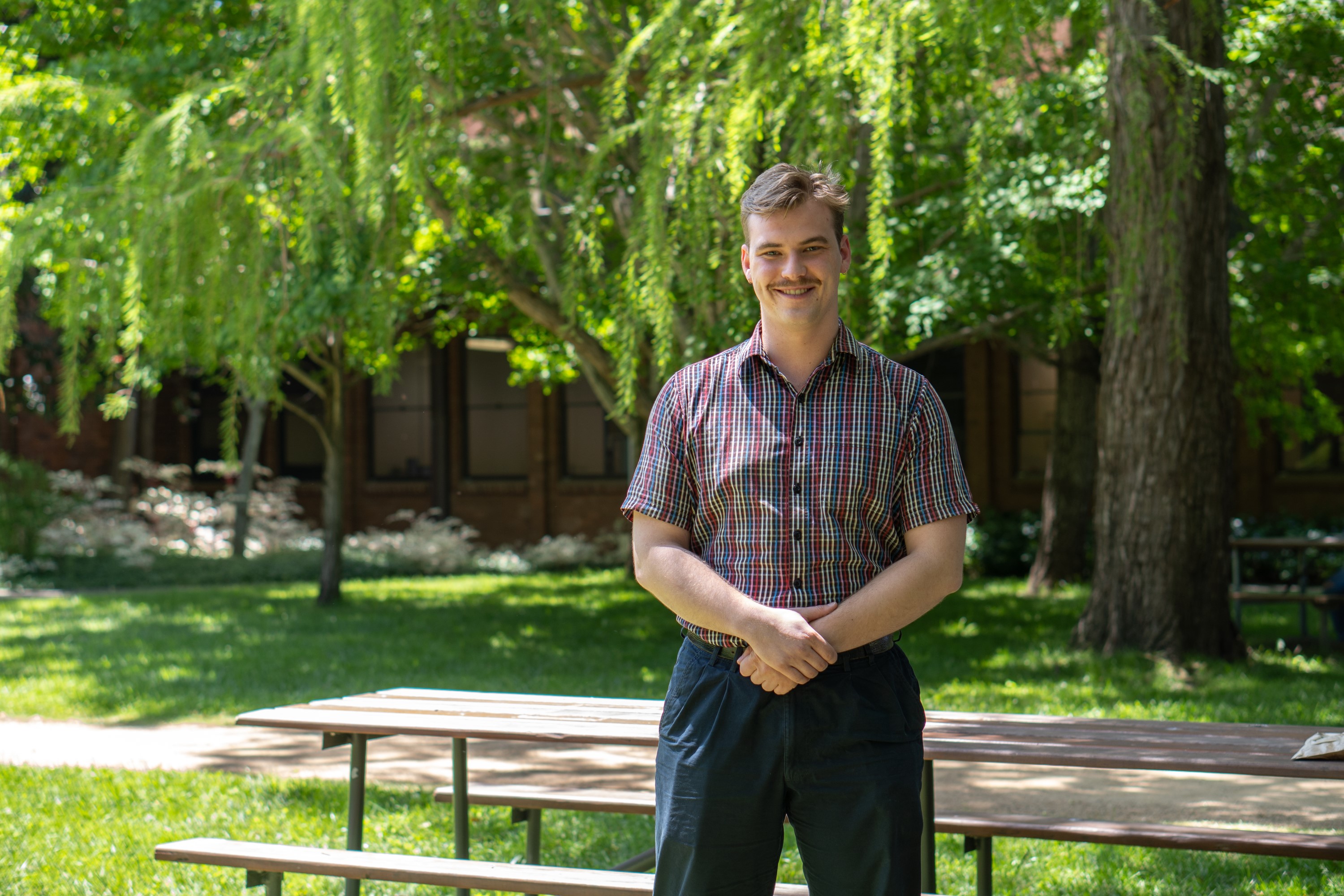Ask a student: Isaac's internship experience

Isaac Kozlovskis is studying a Bachelor of Arts / Bachelor of Science. As part of his studies, he completed an internship at the Australian Academy of Science.
Why did you decide to apply for an internship?
I am always keen to consolidate what I’m learning in practical contexts. I think what we do in the classroom/lab is only a small part of education. Communication, teamwork, and understanding of science in national and global contexts are all crucial. I thought that an internship would help me develop these skills.
I was also really interested in the specific internship project being advertised. The internships website/ my inbox is always populated with new internship positions, so I applied for a few that interested me.
How was the process? What was the level of support from the college/university?
The application process was extremely straightforward. I just wrote a short letter of interest and suitability and sent it to the internships office with a copy of my CV. The on-boarding process was also simple. All the ANU interns going on different placements had an induction, I then met with my supervisors and got underway with the project! Although I was a bit daunted for my first days in a professional environment, I was quickly welcomed by the team and acclimatised to the workplace. There was a little bit of paperwork to do, but I always felt that I could ask for help if I needed it.
Did you end up with the specific internship opportunity that you were after? Were there others that you were interested in?
There’s lots of internships I am/was interested in. I applied to another internship doing work in climate policy and public awareness, I was offered an interview but was ultimately unsuccessful. I’m glad I didn’t let this discourage me from applying for more placements.
When I saw the HASS/STEM project being offered by the Academy I was thrilled. I jumped at the idea of working on such a multi-disciplinary project.
The College of Science and Medicine offers so many projects that sometimes my mates and I will send relevant ones to each other.
Can you describe a day in your life as an intern?
The Academy was super accommodating of my uni schedule, so I opted to work two half-days to work around my classes. I was fortunate to work and learn in such a positive work culture.
My project was to identify Humanities, Arts and Social Science (HASS) and STEM research collaboration successes in Australia. I produced three short-form articles, each highlighting a success story. My days mostly involved, research, consultation and writing.
I would usually attend a meeting with my team, where we would all (myself included) give updates of what we were working on.
My supervisor encouraged me to attend or enquire about any projects or meetings beyond the scope of my project- and if possible, to attend out of interest. So, I would also attend meetings of the Academy’s policy team and was able to sit in on conversations about some very exciting projects.
I felt like a valuable team member was often encouraged to share my opinion or give input on ongoing projects.
Biggest achievement and/or most memorable experience from your internship?
I think one of the most memorable experiences was being able to work with so many incredible colleagues. Their passion and care for their work is truly contagious and something I try and emulate in my life. The workplace was such a welcoming and positive environment which I will not soon forget.
Do you believe this internship will help you achieve your career goals? If yes, how?
Halfway through my placement I was offered part-time work at the Academy. I then completed both my role as an employee and my work as an intern simultaneously.
I also think the relationships I developed with my colleagues are so invaluable. Not only have I learnt so much and advanced my professional network, I also made some fantastic friends.
Skills I developed including stakeholder engagement and project management are among the most useful soft skills that will serve me long into my career.
What would you say to future students about pursuing a science internship? (networking opportunities, real world experience, application of theory to real problems etc.,)
To future science interns I would recommend valuing all that the internship has to offer. The work component is important, but so are your connections, soft skills, pollination of classroom learnings and accepting challenges! I would also recommend keeping clear lines of communication with your supervisors and not being afraid to ask for help or clarification.
Do you think internships are a crucial component of study? If yes, how?
What you learn in the classroom is only a small slither of what is offered at university. Internships, like many learning experiences are what you make of them. If you take it by the horns, it can broaden your worldview, strengthen your skills and challenge you to apply yourself in real settings. I wholeheartedly encourage anyone considering applying to just throw yourself at it, it has been one of the most valuable things I have done at ANU.



